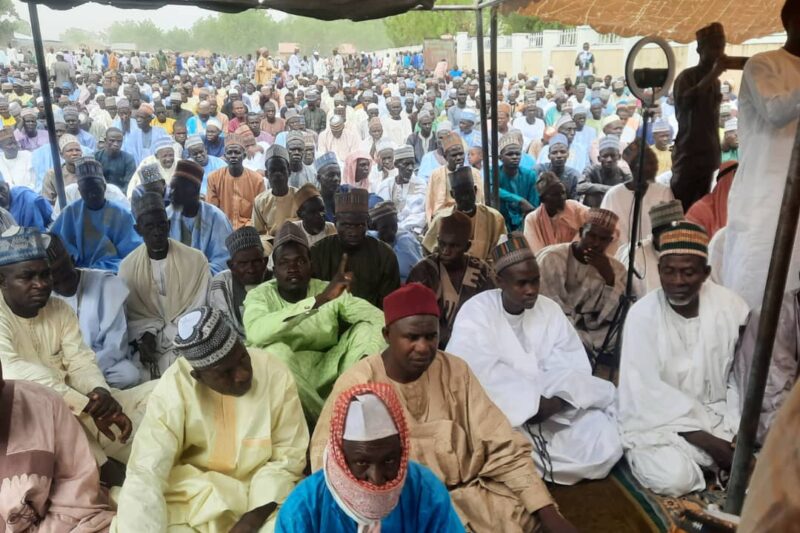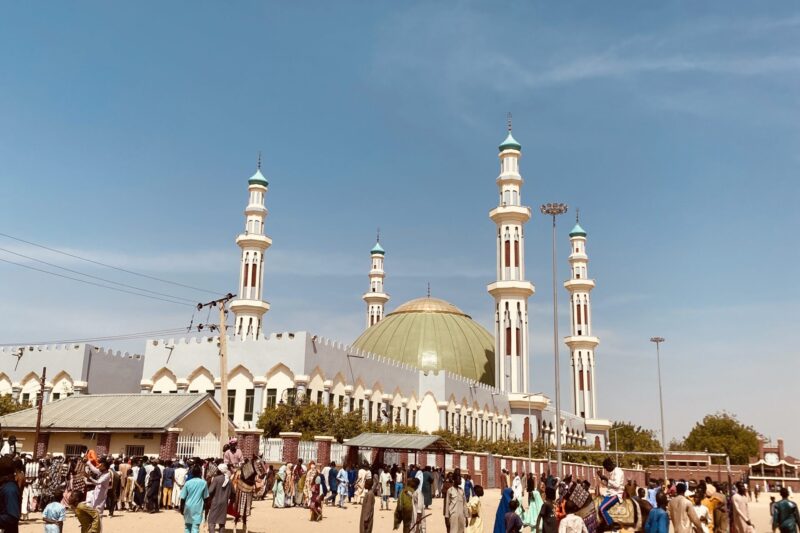Rape continues to be one of the most prevalent human rights violations in Nigeria – and reports continue to escalate.
A damning report by Amnesty International published on November 17 said that following the lockdown imposed to tackle the spread of Covid-19 in 2020, there was an upsurge in cases of rape.
In June 2020, Nigerian police said they had recorded 717 incidents of rape between January and May last year. In April 2020, Nigeria’s minister of women affairs, Pauline Tallen, said at least 3,600 cases of rape were recorded during the lockdown, while the National Human Rights Commission (NHRC) received 11,200 reported cases of rape over the whole of 2020.
Despite state governors declaring a “state of emergency” on rape and gender-based violence in June last year, the number of women raped has continued to spiral. The governors promised to set up a sex offenders’ register. But, more than a year since their declaration, nothing has changed, as more cases of rape have been reported.
Amnesty International reported on some of the cases:
- One victim, Vera Uwaila Omosuwa, a 22-year-old microbiology student, was raped and brutally assaulted last year in a church near her home in Benin, Edo State, and died a couple of days later from her injuries.
- Hamira, a five-year-old, was drugged and raped by her neighbour in April 2020. Her injuries were so bad she could no longer control her bladder.
- Barakat Bello, an 18-year-old student, was raped during a robbery in her home in Ibadan, Oyo State. She was butchered with machetes by her rapists and died on June 1 last year.
- Favour Okechukwu, an 11-year-old girl, was gang-raped to death in Ejigbo, Lagos State.
- A 70-year-old woman was raped in Ogun State.
- In May this year, a six-year-old girl was raped to death in Kaduna State.
“The COVID-19 pandemic only exposed what has been going on for so long. Not only are women and girls being raped in Nigeria, but when they are brave enough to come forward they are being dismissed by police officers as liars and attention-seekers – slurs which inflict further injury,” said Osai Ojigho, the Director of Amnesty International Nigeria.
The organisation said that despite Nigeria’s international human rights obligation to enact, implement and monitor legislations addressing all forms of violence against women, women and girls continued to face discrimination in law and practice.
The definition of rape under the Criminal Code, which is applicable in the southern part of Nigeria, and the Penal Code, which is applicable in northern Nigeria, were both outdated, the organisation said, adding that the Violence Against Persons Prohibition Act had expanded the scope and definition of rape but was silent on consent.
“Notwithstanding expanding the legal scope of the definition of rape, the Violence Against Persons Prohibition Act and other laws have limited jurisdiction. Even in states where the Act and other laws have been domesticated, there has been no enforcement or implementation,” said Ojigho.
Stigma and victim-blaming were key factors hindering women from reporting rape.
Survivors shared distressing experiences of both and told Amnesty International that they did not report because they feared they would not be believed or blamed. Children, who are increasingly becoming targets of sexual violence, faced particular challenges in reporting these crimes because of a lack of a reporting process that was child-friendly.
Some survivors said they were discouraged from seeking justice because of the toxic attitude of police officers towards gender-based violence, which manifested in humiliating lines of questioning and victim-blaming. In addition, decrepit police stations often lacked the space for privacy that survivors needed to make their statements, the organisation said.
It gave as an example the case of Onyinye, a 14-year-old, who was raped by her neighbour when she was sent by her mother to help fix his phone. When Onyineye and her mother went to the police station to report the crime, not only did a female police officer slap the girl and pull her ear, Onyinye’s mother was also scolded for not giving her daughter a “good upbringing”.
Amnesty International said Nigerian authorities had to act now to protect women and girls from rampant sexual violence. All reported cases of rape should be thoroughly, promptly and impartially investigated and perpetrators should be prosecuted, and if convicted, sentenced with appropriate penalties. Existing discriminatory laws should be repealed and followed up with a concrete implementation and enforcement framework.
Nigerian police should provide all necessary support to survivors and act in line with their code of conduct, by providing a safe process of seeking justice for survivors to report rape and other gender-based violence and get justice.
Courts should ensure that cases of sexual violence were fairly and promptly prosecuted. Any backlog in rape cases that might create unacceptable barriers for rape survivors’ access to justice had to be addressed.
“Concrete actions have not been taken to tackle the rape crisis in Nigeria with the seriousness it deserves. Women and girls continue to be failed by a system that makes it increasingly difficult for survivors to get justice, while allowing perpetrators to get away with gross human rights violations,” said Ojigho.
“Nigeria must protect women and girls by ensuring that perpetrators of rape face justice and survivors get protection and psychosocial and medical support. The tide of sexual impunity against women and girls must be turned now,” she said.
Nigeria is a signatory of the Maputo Protocol, which calls on states to guarantee the rights of women. The country also signed the Convention on the Elimination of All Forms of Discrimination against Women (CEDAW) in 1985.
“There is a gap between what signing countries should put in place and what they actually do. There is a problem in transposing this international law into national laws,” said Fabienne Richard from the General Commission for Refugees and Stateless Persons.








